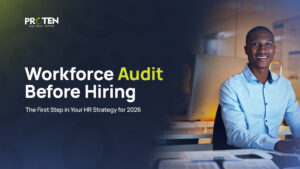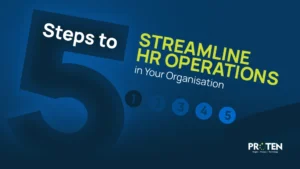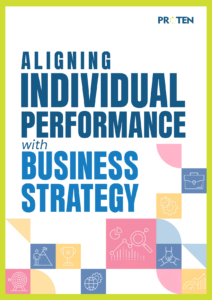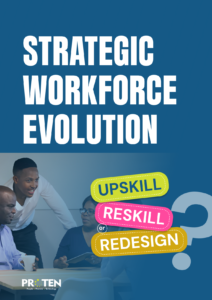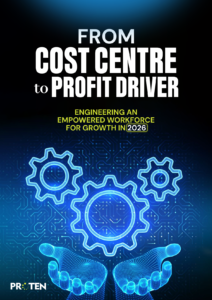Work is evolving at a rate that nearly everyone cannot keep up with. Every few months, new technologies are released, employees are reconsidering what they want out of their careers, and HR departments are there in the thick of it.
According to SHRM, more than half of workers say they’ll need to learn new skills just to stay in their careers.
In 2026, HR will be more than just hiring, onboarding, and policy management. It would be about assisting people and businesses in adapting to constant change while balancing automation with empathy, growth, well-being, and strategy with practical reality.
However, there is a lot to juggle. So here are ten HR challenges that will shape how we work in 2026 and what HR teams have to resolve to stay ahead.
1. Adapting to Nigeria’s Tax Overhaul Coming January 2026

Major tax reforms are on the horizon in Nigeria, and HR teams will feel the ripple effects. The Nigeria Tax Act 2025 (along with companion laws) kicks in from January 1, 2026.
Here’s what HR leaders need to keep an eye on:
- The former Federal Inland Revenue Service (FIRS) has been rebranded and expanded into the Nigeria Revenue Service (NRS), tasked with a broader mandate including non-tax revenue and improved enforcement.
- For individuals: Employees earning up to ₦800,000 annually will be fully exempt from personal income tax under the new regime.
- For businesses: Several tax statutes (Companies Income Tax Act, Personal Income Tax Act, VAT Act, etc.) are consolidated under one umbrella law, simplifying the tax framework.
- HR will need to update payroll processes, employee tax education, and internal policies, especially if your organisation operates across states or has international elements.
Why this matters to HR in 2026:
HR will not only deal with hiring, onboarding and employee engagement. You’ll also help employees understand how these tax changes affect them, adjust benefits and payroll practices accordingly, and ensure the business remains compliant. This adds a strategic layer to HR’s role.
What to do now:
- Start reviewing payroll systems and benefits packages to align with the new tax bands and exemptions.
- Plan communication to staff, especially lower-income employees who see direct impact, and higher-income staff whose tax brackets may shift.
- Work with finance and tax advisors so your HR policies reflect the “new normal” in Nigerian taxation.
2. Finding Balance with AI in the Workplace

AI is no longer something HR can play around with on the side. It already has extensive hiring systems, learning tools, and performance tracking capabilities. The problem now is not whether to utilise it, but how to do so ethically.
Many employees continue to perceive AI as a danger. There are concerns about job loss, privacy, and being judged by algorithms rather than people. HR teams, on the other hand, see a clear benefit: less paperwork, faster decision-making, and data that can assist in identifying problems before they become major difficulties.
The true test for HR in 2026 will be achieving balance. That includes transparently introducing AI tools, clarifying their purpose, and ensuring that technology helps rather than replaces employees. Companies that get this right will win their employees’ trust rather than fear.
Read more on The Role of Emotional Intelligence in Performance Appraisals.
3. Closing the Skills Gap Before It Widens

Every company is discussing digital transformation, but not all of them have the necessary expertise. As 2026 approaches, that is turning into one of HR’s major issues.
AI and automation have changed job processes. Experience-based roles today require data literacy, tech competence, and flexibility. The outcome? a widening disparity between employees’ abilities and what companies require.
This is a retention issue as well as a recruitment issue for HR. A skills shortage cannot be solved by recruiting more people. It will be more important than ever to retrain and upskill current personnel. Learning must become an integral part of the company’s culture rather than merely an onboarding checkbox.
The best HR departments will concentrate on developing continuous learning programs, tying them to career advancement, and rewarding employees who take the initiative to learn. Because in 2026, the organisations that overcome the skills gap first will remain ahead of the competition and retain their finest staff.
Read more on 5 Proven Strategies to Bridge Talent Gaps.
4. Redefining Employee Well-Being Beyond Perks

For a while, “well-being” at work referred to yoga sessions, fruit baskets, or a mental health webinar. However, employees are now demanding more, and HR departments can no longer approach it as a side project.
In 2026, well-being will include financial stability, mental health, physical fitness, and a feeling of balance that works. Employees want companies that not just talk about self-care, but also practice it, with appropriate workloads, flexible hours, and actual support systems.
This transformation requires HR to grasp that burnout is caused by unsustainable expectations rather than laziness. It entails looking beyond surface-level benefits to address structural issues such as bad management practices, ambiguous communication, and strict policies.
Read more on What Investing In Employee Wellbeing Can Do for Your Business.
5. Rebuilding Engagement Through Better Managers

Employee engagement has been steadily declining globally, and Nigeria is no different. (stat) Employees are showing up but not giving their all, and management is a major contributor to this.
In 2026, one of HR’s most difficult tasks will be to rebuild engagement by repairing the shattered relationship between employees and their managers. The truth is that people do not leave jobs first because they leave their managers. When leadership is inconsistent, communication is poor, or feedback appears one-sided, motivation quickly fades.
HR departments will need to go beyond engagement surveys since the actual effort is in teaching managers to listen, coach, and establish trust. It entails helping them develop soft skills such as empathy, communication, and adaptability in addition to technical ones.
Read more on 30 Effective Employee Engagement Strategies to Implement in 2026.
6. Keeping Company Culture Strong Through Burnout and Change

Company culture used to be something you could feel the moment you walked into the office, with the energy, the conversations, the teamwork. Now, with remote and hybrid work becoming the norm, culture feels harder to define and even harder to maintain.
At the same time, burnout is quietly eroding what’s left of that sense of connection. People are tired of constant change, tighter deadlines, and the pressure to always be online. When that exhaustion spreads, that’s when culture begins to weaken.
In 2026, HR’s challenge will be to rebuild that sense of belonging in a changing work environment. It’s not about forcing team bonding activities or company slogans, but it will be about creating genuine connections. That could mean regular check-ins that go beyond tasks, leaders who communicate openly, and policies that show the company actually values rest and recovery.
Culture is no longer about what’s written on the walls. It’s about how people treat each other when no one’s watching, especially during stressful times. Keeping that alive will be one of HR’s biggest wins in 2026.
Read more about how you can fix a weak company structure.
7. Moving from HR Support to HR Strategy

For years, HR has been seen as the team that handles paperwork, policies, and payroll. But in 2026, that version of HR won’t cut it anymore. Companies are now looking to HR for direction and not just administration.
The new expectation is clear: HR should help shape business decisions, not just react to them. That means developing strategic skills like financial understanding, data analysis, and workforce planning. It also means knowing how to speak the language of business, like linking people’s decisions to revenue, retention, and growth.
HR professionals will need to build confidence in interpreting data, forecasting talent needs, and contributing to strategy meetings as equals. The teams that make this jump will be the ones influencing what the company becomes, not just managing who works there.
Read more about how to build an HR Strategy For Global Expansion.
8. Juggling Conflicting Priorities Without Losing Focus

HR has always been about balance, but in 2026, that balance gets trickier. On one hand, employees want better pay, flexibility, and purpose. On the other hand, leadership is pushing for cost control, productivity, and efficiency. Somewhere in the middle, HR has to make it all work.
This constant tug-of-war can stretch HR teams thin. You’re expected to be the employee advocate and the voice of the business. The fixer for short-term fires and the planner for long-term strategy. Trying to do it all can leave even strong HR teams exhausted.
The only way forward is prioritisation. HR leaders will need to decide what truly moves the business and what can wait. It means saying “no” sometimes, being transparent about trade-offs, and aligning every HR initiative with measurable outcomes.
9. Guiding Teams Through Continuous Uncertainty

Change used to happen every few years. Now, it’s every few months. New policies, restructures, mergers, and leadership changes, but employees barely have time to adjust before the next shift begins.
For HR, that’s an emotional and strategic challenge. You’re the bridge between leadership and the people feeling the weight of every decision. You have to keep teams informed, calm, and motivated even when the future isn’t fully clear.
In 2026, adaptability will be one of the most important HR skills. The ability to communicate clearly during transitions, support managers through uncertainty, and maintain trust when everything else feels unstable will set great HR leaders apart.
10. Meeting Employee Expectations Within Business Limits

Employees today know what they want, e.g fair pay, flexibility, and a sense of purpose. But the truth is, not every business can meet all those expectations at once. With inflation, tighter budgets, and growing competition, HR will constantly have to find a middle ground.
In 2026, that balance gets even harder. Employees want remote options, mental health support, and meaningful work. Employers want performance, consistency, and profitability. The tension between both sides isn’t just going to go away, but how HR manages it will make the difference.
The best approach is honesty. Employees can handle tough news if they trust how it’s delivered. Being transparent about why certain benefits can’t be expanded or why raises are delayed helps maintain credibility.
Conclusion
The year ahead will push HR to grow in every direction, be it strategically, technologically, and emotionally. From new tax laws to AI adoption and shifting employee expectations, the work won’t just be about policies or people. It’ll be about balance.
HR leaders who thrive in 2026 will be the ones who can think like strategists but still act with empathy. They’ll know how to use data without losing the human touch, and they’ll guide teams through constant change without burning themselves out.





